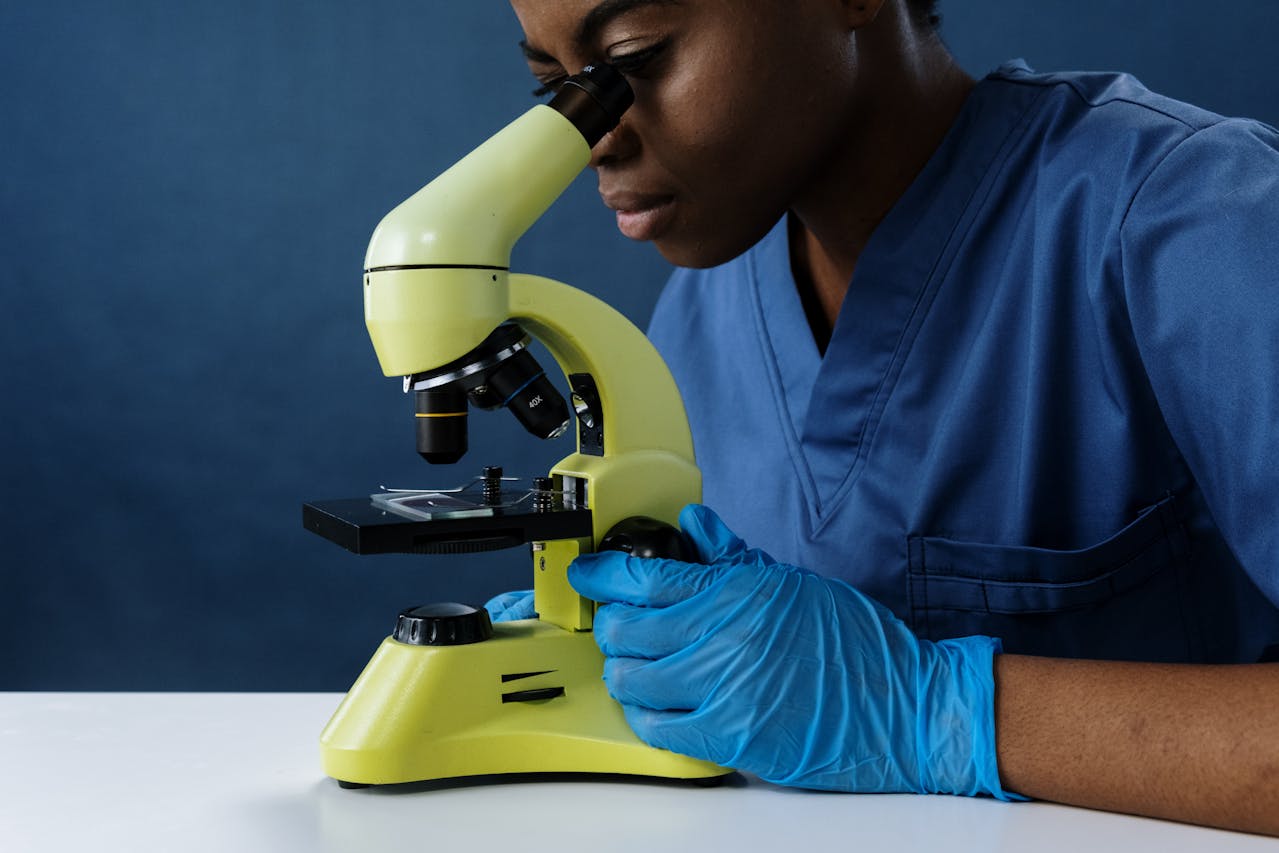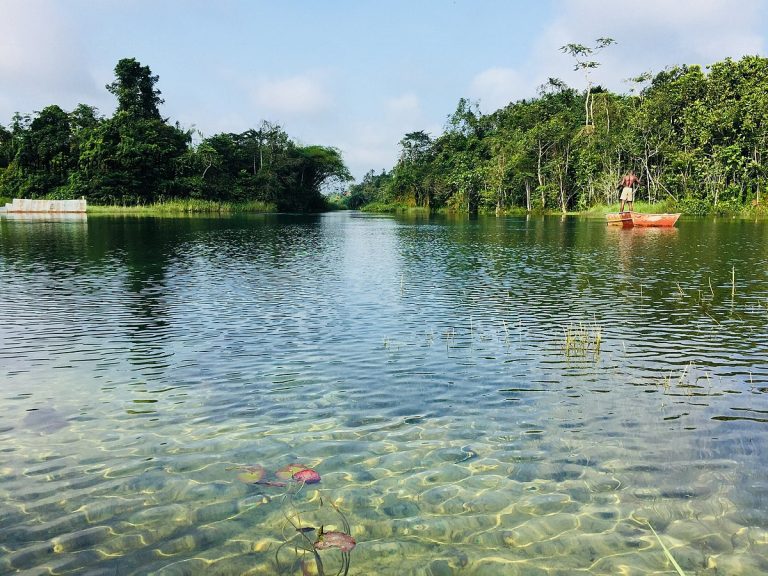Medical laboratory science is an essential component of healthcare systems around the globe. Knowing the foundations of curriculum development and its worldwide standards is crucial for a Nigerian medical laboratory scientist thinking about chances abroad. This information not only improves your professional credentials but also makes you more competitive for international academic or career progression opportunities. The complexities of curriculum development in medical laboratory science (MLS) programs are examined in this article, with an emphasis on how it affects Nigerian scientists who want to use their training abroad.
Understanding Curriculum Development in Medical Laboratory Science
Curriculum development is the methodical process of organizing, creating, carrying out, and assessing educational initiatives. A well-designed curriculum in medical laboratory science gives students the professional ethics, practical skills, and theoretical knowledge required for the sector. Adhering to international standards is essential for Nigerians who want to work or study elsewhere.
Key Components of an MLS Program
1. Core Medical Science Courses: Anatomy, physiology, microbiology, immunology, and biochemistry are among the fundamental courses. These topics strengthen the scientific foundation for analytical and diagnostic processes.
2. Specialized Laboratory Skills: Hematology, histopathology, clinical chemistry, transfusion science, and molecular diagnostics are the main topics of these courses. To reach international standards, practical instruction in sophisticated laboratory procedures is essential.
3. Research and Development: The majority of MLS programs encourage students to contribute to scientific developments by integrating project development and research technique.
4. Ethics and Regulatory Compliance: Professional ethics, quality assurance, and regulatory standards courses guarantee that graduates are capable of navigating the demands of the global healthcare system.
5. Clinical Placement and Internship: A key component of MLS programs is hands–on training in hospital labs. Nigerian graduates who are looking for employment abroad must make sure their internships fulfil or above international standards.
The Need for Standardization in MLS Curriculum
The MLS curriculum is always changing around the world to take into account new developments in medical research, healthcare issues, and technology. Adhering to international accrediting organizations like the American Society for Clinical Pathology (ASCP) or the International Federation of Biomedical Laboratory Science (IFBLS) guarantees competitiveness for Nigerian programs.
Important International Guidelines
- IFBLS Guidelines: Stress key competencies and ethical principles while focusing on consistency in MLS education worldwide.
- ASCP prerequisites: Emphasize your eligibility for certification tests that verify your worldwide knowledge.
- Frameworks for standardizing laboratory practices throughout Europe are provided by the European Federation of Clinical Chemistry and Laboratory Medicine (EFLM).
Challenges in Nigerian MLS Programs
- Limitations on Resources: Learning practical skills is hampered by inadequate lab supplies and equipment. Access to cutting-edge technologies is restricted by inadequate financing.
- Curriculum Gaps: Differences between courses taught in domestic and foreign programs. Little focus on cutting-edge disciplines like informatics and molecular diagnostics.
- Accreditation and Recognition: Because of variations in the breadth of training, many Nigerian MLS graduates encounter difficulties having their credentials accepted outside.
- Exposure to International Practices: Limited chances for international partnerships and exchange programs.
Opportunities for Nigerian MLS Graduates
1. Pursuing Further Studies Abroad
Countries such as the UK, USA, Canada, and Australia offer advanced degrees in MLS. Programs like Master’s in Clinical Laboratory Science or Molecular Diagnostics enhance specialization.
Steps to Align Your Curriculum
- Equivalency Assessment: Evaluate your Nigerian MLS degree against international standards. Organizations like World Education Services (WES) assist in this process.
- Prerequisite Courses: Identify and complete any additional courses required by foreign institutions.
- Certification Exams: Passing exams such as the ASCP certification increases your chances of acceptance.
2. Gaining Professional Licensure
Many countries require professional licensure to practice. For instance:
- United States: The ASCP Board of Certification (BOC).
- United Kingdom: Health and Care Professions Council (HCPC) registration.
- Canada: Certification by the Canadian Society for Medical Laboratory Science (CSMLS).
3. Participation in Exchange Programs
Collaborative programs between Nigerian universities and foreign institutions provide exposure to global practices and facilitate networking.
Strategies for Nigerian MLS Programs to Enhance Global Relevance
1. Curriculum Modernization
- Incorporate courses on genomics, bioinformatics, and personalized medicine.
- Increase the use of simulation tools and virtual laboratories to complement traditional training.
2. Strengthen Accreditation Efforts
- Pursue international accreditation from bodies like ASCP or EFLM.
- Develop partnerships with international organizations to standardize training.
3. Expand Research Opportunities
- Introduce research partnerships with global institutions.
- Create platforms for publishing and presenting research at international conferences.
4. Focus on Soft Skills Development
- Offer training in communication, teamwork, and leadership to prepare graduates for multicultural work environments.
Tips for Nigerian MLS Scientists Preparing to Study or Work Abroad
- Research the Destination Country’s Requirements: Understand the specific educational, licensure, and language requirements.
- Upgrade Your Qualifications: Take additional courses or certifications to bridge any curriculum gaps.
- Gain Relevant Experience: Work in specialized fields or research areas that are in demand internationally.
- Leverage Professional Networks: Join international MLS associations for mentorship and job opportunities.
- Stay Updated on Global Trends: Attend workshops, webinars, and conferences to stay ahead in the field.
For Nigerian scientists hoping to study or work overseas, curriculum development in medical laboratory science is essential. Nigerian MLS professionals can fulfil their worldwide career goals by utilizing possibilities, overcoming local issues, and aligning with global norms.
The secret to opening up international chances for those making travel plans is careful planning, ongoing education, and effective networking. Understanding the complexities of MLS curriculum building guarantees a competitive edge in the global healthcare landscape, regardless of whether one is pursuing professional licensing or advanced study.






Leave a Comment